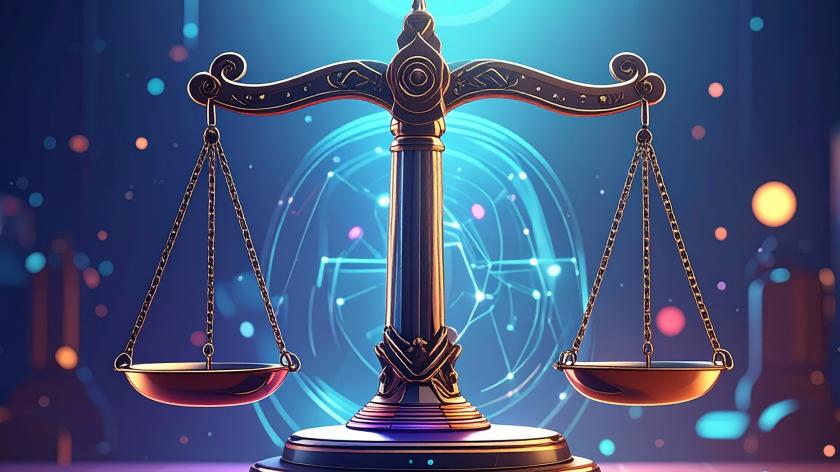Arbitration 4.0: The New York Convention at the Crossroads of AI and Decentralised Justice
Arbitration 4.0: The New York Convention at the Crossroads of AI and Decentralised Justice
Darejan Beridze is a dual-qualified attorney admitted to practice in New York and Georgia, with over eight years of experience in international dispute resolution and financing transactions across Georgia, Germany, and the U.S. Her LinkedIn is: https://www.linkedin.com/in/darina-beridze-esq-416795b8/
Bárbara Bada Barrena has trained in several international arbitration boutiques in Madrid and is now pursuing a Dual Master in Access to the Legal Profession and Business Law (LL.M.) at IE Law School, alongside preparation for the SQE. She currently coaches the Spanish team for the Willem C. Vis Moot in Vienna. Her LinkedIn is: https://www.linkedin.com/in/barbarabada/
Introduction
The 1958 New York Convention on the Recognition and Enforcement of Foreign Arbitral Awards (“Convention”) remains the cornerstone of international dispute resolution, lauded for its universality and conceptual elegance. Yet its endurance now faces an unprecedented stress test: the ascent of decentralised protocols, algorithmic tribunals, smart contracts, and artificial intelligence (“AI”). These developments challenge the architecture of consent, jurisdiction, reasoning, and legitimacy underpinning the Convention’s pro-enforcement ethos.
Blockchain-based dispute resolution platforms and AI are reshaping arbitration, from arbitrator selection to drafting awards, promising speed and efficiency. However, they also raise a pressing question: can AI-assisted or blockchain-based arbitral awards be recognized and enforced under the Convention and existing legal frameworks? The answer depends not only on the evolving capabilities of those technologies, but also on the extent to which their use preserves fundamental principles of due process, reasoned decision-making, and public policy embedded in the Convention framework.
The Existing Legal Framework
The Convention sets out limited grounds for refusing recognition and enforcement of arbitral awards, including where the procedure did not comply with the parties’ agreement or applicable law[i], or where enforcement would violate public policy.[ii] A failure to render a reasoned award may fall within these grounds, since national arbitration laws, particularly those based on the UNCITRAL Model Law[iii], generally require awards to be in writing and to set forth the tribunal’s reasons underlying its decision, unless the parties have agreed otherwise. However, even if AI-assisted or blockchain-based awards are technically in writing, it can be argued that they do not satisfy the “reasoned” requirement because such awards usually generate conclusions without demonstrating the analysis and the reasoning process is opaque.
None of the above legal instruments expressly addresses AI or blockchain arbitration. But the text of these laws appears to assume that decisions result from human judgment and are tied to a legal seat “in the territory of a State” under Article I(1) of the Convention. Due to inherently decentralized nature of blockchain systems, they lack ties to a specific State, and an award generated entirely by such a system—e.g., delivered “on-chain”—could therefore fall outside the Convention’s scope, raising enforceability challenges.
Risks to Enforceability: AI and Blockchain
Consent, Form, and the Digital Shift
Compliance with the Convention’s formal requirements for an arbitration agreement is essential to avoid enforceability risks. Article II(2) of the Convention requires arbitration agreements to be “in writing” and “signed by the parties,” reflecting a mid-twentieth-century faith in and preference for tangible documents and recognisable signatures. By contrast, smart contracts express assent through conditional code—immutable instructions deployed on a blockchain that are executed automatically without direct human intervention. Parties may interact pseudonymously via wallet addresses, and their agreement may never exist in a traditional document at all.
A functional interpretive approach offers a doctrinal bridge. Modern instruments such as Article 7 of the UNCITRAL Model Law on Electronic Commerce[iv] affirm that an electronic signature can satisfy the writing requirement if it is reliable and indicates intent. The 2005 UN Convention on Electronic Communications[v] similarly treats accessible electronic data as “in writing.” Case law supports this trajectory: in Soleymani v Nifty Gateway LLC, a dispute arising from an NFT auction on an online marketplace, the claimant—proceeding as a consumer—challenged the click-wrap arbitration clause and governing-law terms under the Consumer Rights Act 2015, raising issues of fairness and public policy in digital marketplaces.[vi], The English High Court upheld an arbitration clause in a clickwrap agreement, stressing that “what matters is whether the assent was real, informed and recorded,”[vii] not whether there was a physical signature.
Public Policy and Due Process Challenges
Public policy arguments are broad concepts encompassing fundamental principles such as equality of arms, impartiality of the tribunal, and the ability to understand and challenge the reasoning behind a decision.[viii] In AI-assisted awards, these principles may be compromised by algorithmic bias—stemming from flawed datasets—or affirmational bias, where AI reinforces dominant narratives or the arbitrator’s initial views. Furthermore, the “black box” problem, where parties cannot understand how AI has arrived at a particular outcome and influenced the tribunal’s decision, threatens the requirement for reasoned awards.
Blockchain arbitration faces parallel but distinct risks. Platforms such as Kleros[ix] —where disputes are resolved by pseudonymous jurors randomly selected from a pool of token-holders who have staked the platform’s native cryptocurrency (PNK), and where decisions are reached by majority vote with economic incentives for coherence— replace human discretion with “due protocol”—an inflexible sequence of automated steps governed by code rather than institutional oversight. While offering transparency and speed, they may exclude parties unfamiliar with the technology or unable to meet its strict procedural timelines, inviting challenges under Article V(1)(b) of the Convention.
Regulatory developments introduce additional risks. The EU Artificial Intelligence Act, for instance, classifies AI systems assisting courts or arbitral tribunals in legal research, factual interpretation, or decision-making as “high-risk,” subjecting them to strict oversight.[x] Use of AI in breach of such requirements could jeopardise award enforcement in those jurisdictions.
Case Studies
The Carrera case in Mexico[xi] illustrates a pragmatic hybrid model: a Kleros award rendered entirely on-chain by pseudonymous jurors was later “translated” into a conventional award by a human arbitrator.[xii] The dispute arose out of a commercial lease agreement, where the parties had agreed that the merits would first be determined through the Kleros platform before being incorporated into the arbitrator’s final decision. In November 2020, the arbitrator issued such an award in Guadalajara, subsequently recognised by the Mexican courts in May 2021. This sequence is significant because the blockchain determination was not enforced autonomously; rather, it was incorporated by reference into a seat-based award that complied with the Convention’s formalities, enabling judicial supervision and enforcement.
Article VII(1) of the Convention acts as an “escape hatch,” enabling courts to apply more favourable domestic laws to recognise awards that might not comply strictly with Convention requirements. This provision allows courts to adapt enforcement practices without undermining the Convention’s legitimacy, bridging technological disruption with established principles.[xiii]
Balancing Efficiency and Legitimacy
The promise of speed and cost reduction that the use of AI offers must be balanced against the moral and procedural commitments that have defined arbitration for decades.[xiv] The principle of audi alteram partem—the right to be heard—remains the ethical anchor of any adjudication, whether human or algorithmic. No algorithm can replicate empathy, contextual awareness, and discretion that human arbitrators employ in resolving disputes.
In this context, technologies should be deployed responsibly. For example, the assistive use of AI—summarising submissions, identifying inconsistencies in evidence—poses minimal enforceability risks when human arbitrators retain control, review outputs, and ensure AI remains a tool rather than a decision-maker. By contrast, reliance on AI for substantive analysis raises concerns: opaque algorithms, unclear datasets, embedded biases, and difficulty with inherently human concepts like good faith or reasonable person standard. Hence, the greater the AI’s involvement in substantive decision-making, the higher the risk of challenges based on due process and public policy.[xv]
Accountability is equally essential. In conventional arbitration, arbitrators can be challenged, institutions scrutinised, and courts petitioned. In hidden protocols or opaque AI systems, responsibility may become diffuse, eroding these safeguards. The risk is a theatre of efficiency where procedural guarantees yield to code-based rigidity.
Practical safeguards are offered in soft law instruments, such as the Chartered Institute of Arbitrators’ “Guideline on the Use of AI in International Arbitration”[xvi] and the Silicon Valley Arbitration & Mediation Center’s “Guidelines on the Use of AI in Arbitration”[xvii]. They recommend retaining human oversight over substantive decisions and documenting and disclosing AI use.[xviii] Similarly, in blockchain-based dispute resolution systems, technological innovation should enhance efficiency and record-keeping without replacing human judgment.
Conclusion
The Convention’s silence on technology is not a flaw but an invitation - to adapt, to question, and to ensure arbitration continues resolving disputes with integrity. Functional interpretation enables tribunals to focus on the purpose of the Convention rather than its literal text, while soft law instruments provide practical guidelines for the sustainable and transparent use of technologies. Article VII further allows flexibility, ensuring that awards rendered with innovative methods - whether AI-assisted or decentralized – can still benefit from enforcement. In this way, the Convention can reconcile innovation with due process.
If justice has been done, even awards from decentralised systems or AI deserve enforcement. If not, no technological novelty can redeem them. The Convention’s genius lies in its resilience: embracing innovation without surrendering arbitration’s foundational principles.
[i] 1958 New York Convention on the Recognition and Enforcement of Foreign Arbitral Awards, Art V(1)(d).
[ii] Ibid, Art V(2)(b).
[iii] UNCITRAL Model Law on International Commercial Arbitration (as adopted in 1985, amended in 2006) Art 31.
[iv] https://digitallibrary.un.org/record/232118?ln=es&v=pdf
[v] https://uncitral.un.org/en/texts/ecommerce/conventions/electronic_communications
[vi] Soleymani v Nifty Gateway LLC [2022] EWHC 773 (Comm). The decision was subsequently appealed (Court of Appeal, [2022] EWCA Civ 1297), but the High Court’s reasoning on electronic assent remains pertinent to the argument developed here.
[vii] Soleymani v Nifty Gateway LLC [2022] EWHC 773 (Comm).
[viii] “UNCITRAL Secretariat Guide on the Convention on the Recognition and Enforcement of Foreign Arbitral Awards”.
(https://newyorkconvention1958.org/index.php?lvl=cmspage&pageid=10&menu=626&opac_view=-1).
[x] Regulation (EU) 2024/1689 of the European Parliament and of the Council of 13 June 2024 (AI Act) [2024], Article 6(2), Annex III.
[xi] https://legalblogs.wolterskluwer.com/arbitration-blog/arbitration-tech-toolbox-is-a-mexican-court-decision-the-first-stone-to-bridging-the-blockchain-arbitral-order-with-national-legal-orders/
[xii] Carrera v [Party Name Withheld], First Instance Judgment, Juzgado Mercantil de Ciudad de México, 2024.
[xiii] Gary B Born, International Commercial Arbitration (3rd edn, Kluwer Law International 2021).
[xiv] Nigel Blackaby et al, Redfern and Hunter on International Arbitration (6th edn, Sweet & Maxwell 2015) 387.
[xv] Chartered Institute of Arbitrators, Guideline on the Use of AI in Arbitration (CIArb 2025), p.6.
[xvi] Ibid.
[xvii] Silicon Valley Arbitration and Mediation Center, Guidelines on the Use of Artificial Intelligence in Arbitration (SVAMC 2024).
[xviii] Ibid, p.14.










